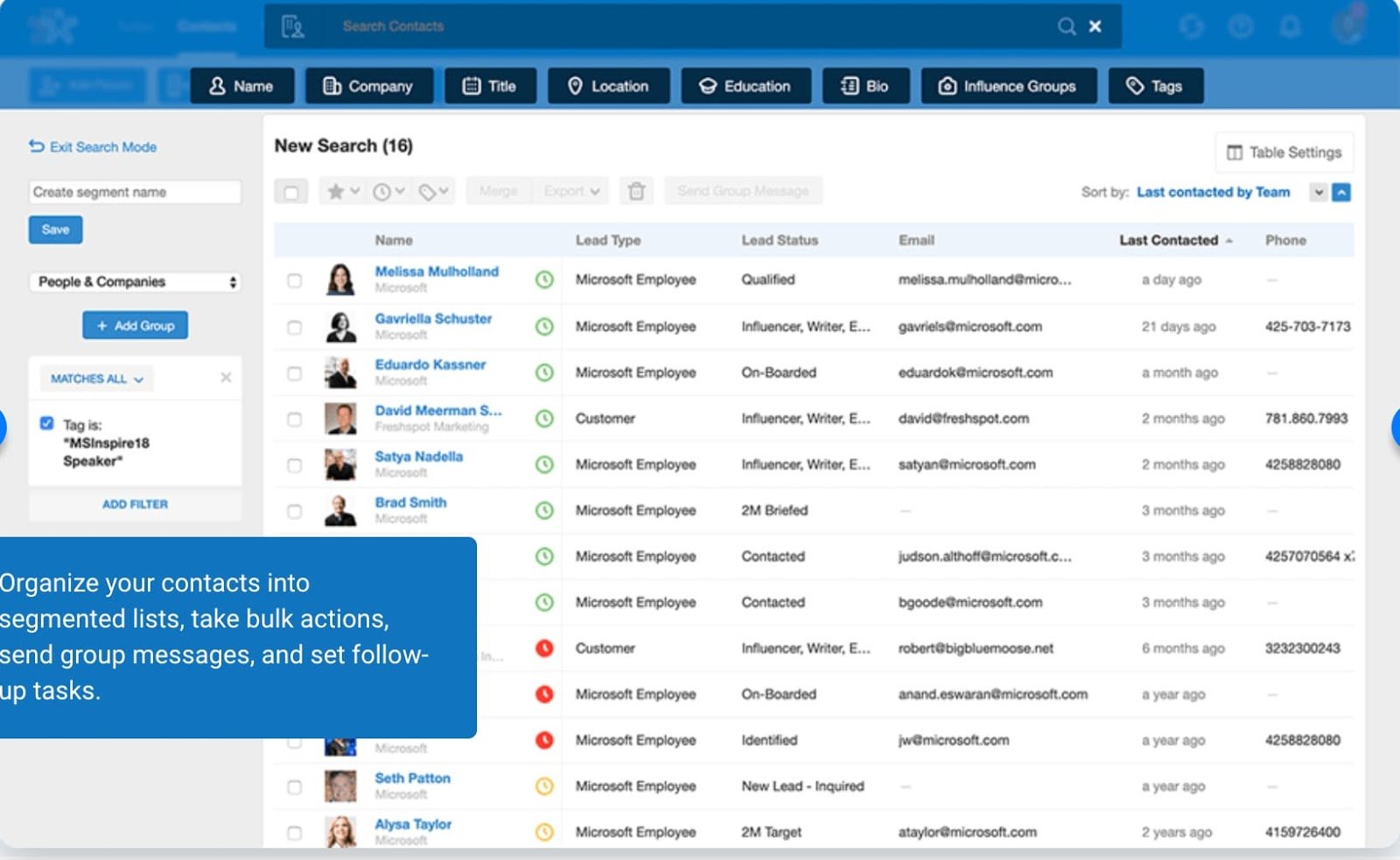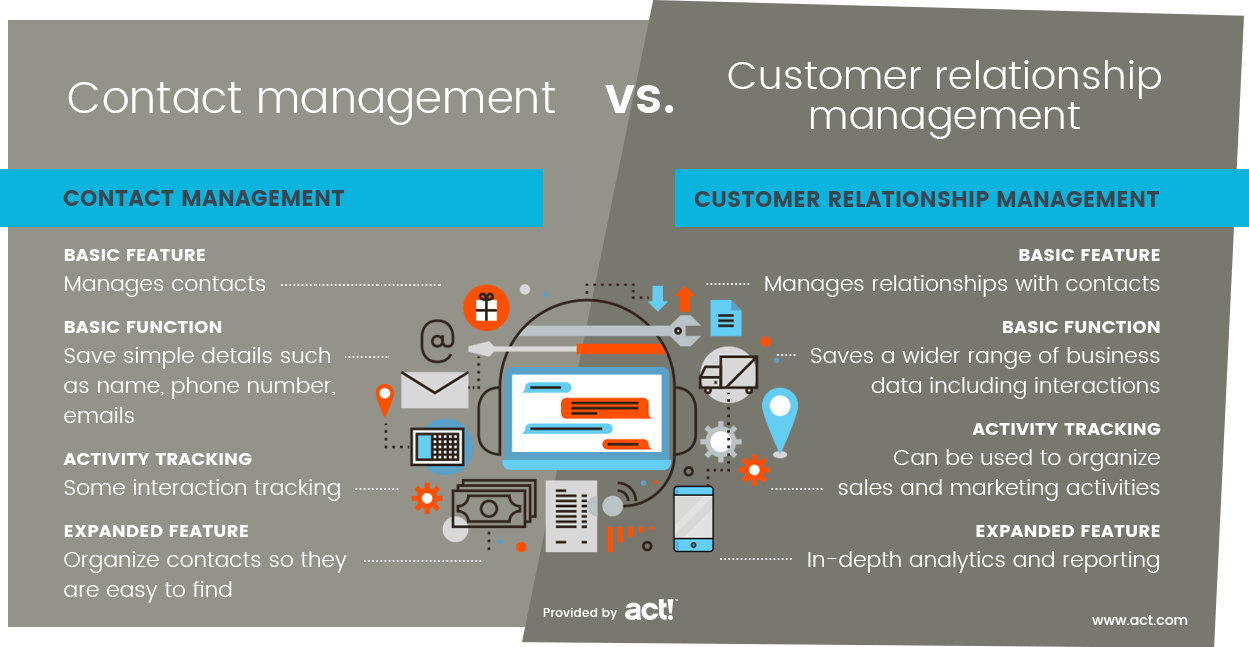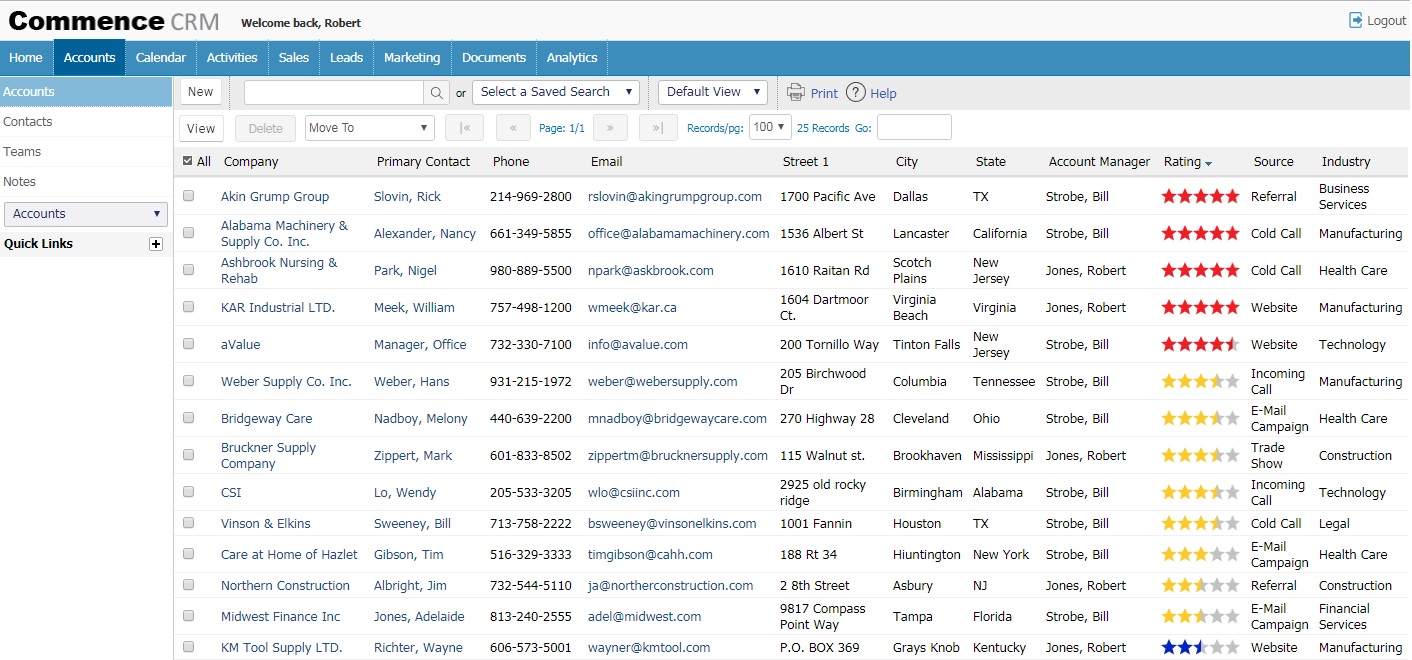Introducing the CRM contact manager, an indispensable tool designed to revolutionize the way businesses manage and nurture their customer relationships. This comprehensive guide delves into the intricacies of CRM contact managers, exploring their benefits, functionalities, and best practices to empower businesses in building stronger and more profitable customer connections.
CRM contact managers have emerged as a cornerstone of modern business operations, enabling organizations to centralize and streamline their contact management processes. By leveraging advanced technology, these tools provide businesses with a holistic view of their customer interactions, empowering them to make informed decisions and drive growth.
CRM Contact Manager Overview

A CRM contact manager is a software tool designed to help businesses manage and organize their customer relationships. It provides a centralized platform to store and track customer information, including contact details, communication history, and sales interactions.
Using a CRM contact manager offers numerous benefits, such as improved customer service, increased sales productivity, and better marketing campaigns. It helps businesses build stronger relationships with their customers by providing a comprehensive view of each customer’s interactions with the company.
Key Features and Functionalities
CRM contact managers typically offer a range of features and functionalities, including:
- Contact management: Store and organize customer contact information, including name, email, phone number, and address.
- Communication tracking: Log and track all customer interactions, such as emails, phone calls, and meetings.
- Sales pipeline management: Track the progress of sales opportunities through different stages of the sales cycle.
- Marketing campaign management: Create and manage marketing campaigns, track campaign performance, and measure ROI.
- Reporting and analytics: Generate reports and analyze data to gain insights into customer behavior and improve business processes.
Popular CRM Contact Manager Software
There are several popular CRM contact manager software available in the market, including:
- Salesforce
- HubSpot
- Zoho CRM
- Microsoft Dynamics 365
- Oracle NetSuite
Benefits of Using a CRM Contact Manager

A CRM contact manager provides a range of benefits that enhance business operations, particularly in the areas of customer relationship management, sales, and marketing.
Improved Customer Relationship Management:
- Centralized storage of customer information, including contact details, preferences, and interaction history, ensures a comprehensive view of each customer.
- Automated tracking of customer interactions across multiple channels (e.g., email, phone, social media) provides insights into customer behavior and preferences.
- Personalized communication and targeted marketing campaigns based on customer data foster stronger relationships and increase customer satisfaction.
Enhanced Sales and Marketing Efforts:
- Lead management and qualification tools help sales teams prioritize and nurture potential customers, increasing conversion rates.
- Automated marketing campaigns and drip sequences nurture leads and drive conversions by delivering personalized content at the right time.
- Integration with other business systems (e.g., accounting, project management) provides a seamless flow of information and eliminates data silos.
Features and Functionalities of a CRM Contact Manager

A CRM contact manager is a software tool that helps businesses manage their customer relationships. It provides a centralized platform for storing and tracking customer data, such as contact information, purchase history, and communication history. This data can be used to improve customer service, marketing, and sales.There
are many different CRM contact managers on the market, each with its own unique set of features and functionalities. However, some of the most essential features include:
Contact Management
Contact management is the core functionality of a CRM contact manager. It allows businesses to store and track customer data, such as contact information, demographics, and purchase history. This data can be used to create targeted marketing campaigns, improve customer service, and identify opportunities for upselling and cross-selling.
Lead Tracking
Lead tracking is another important feature of a CRM contact manager. It allows businesses to track the progress of potential customers through the sales pipeline. This data can be used to identify bottlenecks in the sales process and improve conversion rates.
Sales Forecasting, Crm contact manager
Sales forecasting is a feature that helps businesses predict future sales. This data can be used to make informed decisions about staffing, inventory, and marketing.
Integration with Other Business Applications
Most CRM contact managers can be integrated with other business applications, such as accounting, marketing, and customer service. This integration allows businesses to streamline their operations and improve efficiency.
Choosing the Right CRM Contact Manager
Selecting the right CRM contact manager is crucial for businesses to manage customer interactions effectively. Here’s a guide to help you evaluate and choose the best solution for your organization.
Criteria for Evaluation
When assessing different CRM contact manager solutions, consider the following criteria:
- Business Needs:Identify your specific requirements, such as the number of contacts, level of customization needed, and integration with other systems.
- Features and Functionality:Determine which features are essential, such as contact management, lead tracking, and marketing automation.
- User Interface:Ensure the solution has an intuitive and user-friendly interface for ease of adoption and efficiency.
- Security:Assess the security measures in place to protect sensitive customer data.
- Pricing and Scalability:Consider the cost and scalability of the solution to meet your current and future business needs.
Implementation and Customization
Once you’ve chosen a CRM contact manager, follow these tips for successful implementation and customization:
- Set Clear Goals:Define the specific objectives you want to achieve with the CRM.
- Involve Key Stakeholders:Engage all relevant teams in the implementation process to ensure buy-in and smooth adoption.
- Customize to Fit:Tailor the CRM to align with your business processes and workflows.
- Provide Training:Train users on the functionality and best practices to maximize utilization.
- Monitor and Evaluate:Regularly track key metrics to assess the effectiveness of the CRM and make adjustments as needed.
Best Practices for Using a CRM Contact Manager
To maximize the effectiveness of a CRM contact manager, it is essential to adopt best practices in contact management. These practices include proper segmentation and organization, meticulous tracking of customer interactions, and proactive follow-up with leads.
Segmenting and Organizing Contacts
Segmenting contacts involves dividing them into distinct groups based on shared characteristics, such as industry, location, or job title. This organization enables targeted marketing campaigns, personalized communications, and tailored customer service.
Tracking Customer Interactions
A CRM contact manager should be utilized to meticulously track all customer interactions, including phone calls, emails, meetings, and social media engagements. This comprehensive record provides a valuable history of each contact’s relationship with the organization.
Following Up with Leads
Leads should be nurtured and followed up with promptly and consistently. A CRM contact manager can automate follow-up tasks, ensuring that no lead falls through the cracks. Timely follow-ups increase conversion rates and strengthen customer relationships.
Conclusion: Crm Contact Manager
In conclusion, CRM contact managers are an essential investment for businesses seeking to optimize their customer relationships. By implementing a robust CRM contact manager, businesses can unlock a wealth of benefits, including improved customer satisfaction, increased sales and marketing effectiveness, and enhanced operational efficiency.
As technology continues to evolve, CRM contact managers will undoubtedly play an increasingly pivotal role in shaping the future of customer engagement and business success.
General Inquiries
What is a CRM contact manager?
A CRM contact manager is a software tool that helps businesses manage and track their customer interactions, centralizing all relevant information in one place.
What are the benefits of using a CRM contact manager?
CRM contact managers offer numerous benefits, including improved customer service, increased sales productivity, enhanced marketing effectiveness, and streamlined operations.
How do I choose the right CRM contact manager for my business?
When selecting a CRM contact manager, consider your business’s specific needs, the number of contacts you manage, and your budget. Research different options and read reviews to find the best fit.